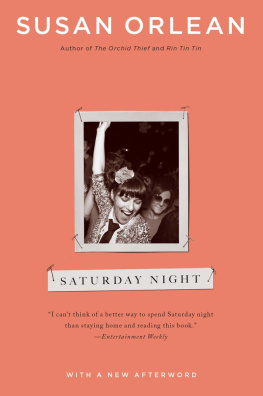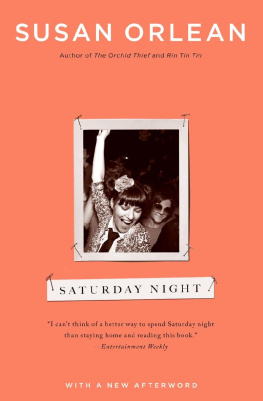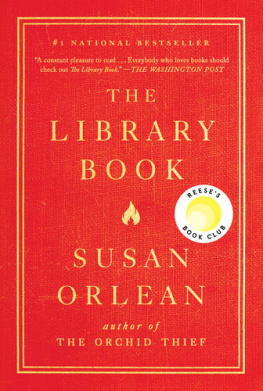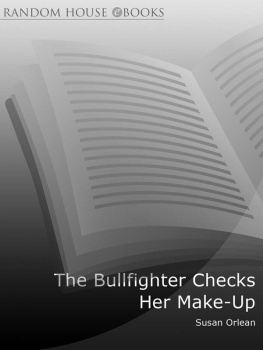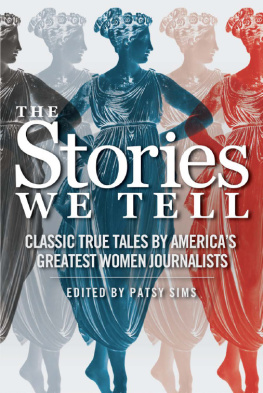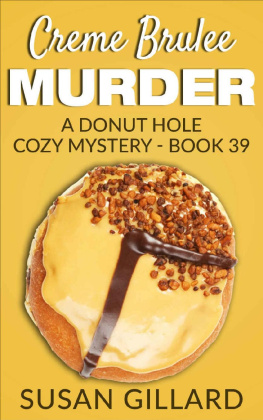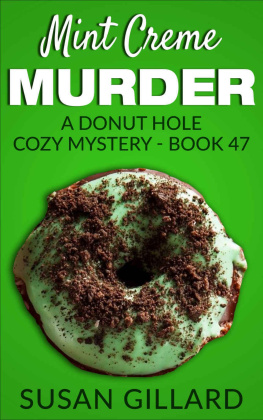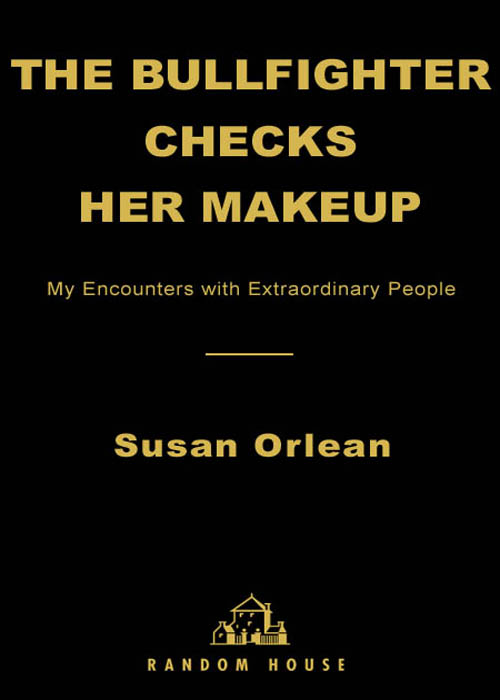
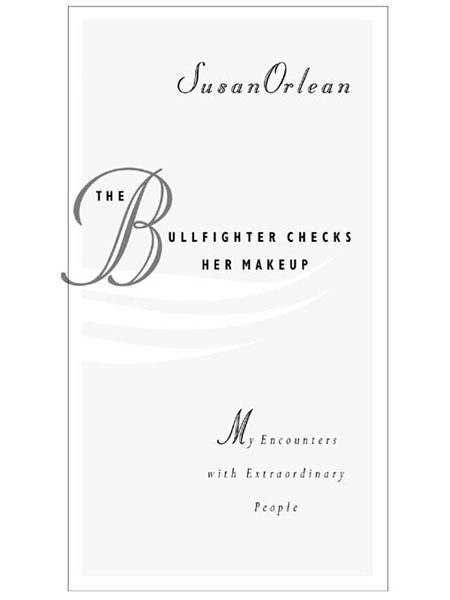
C ONTENTS
L A M ATADORA R EVISA S U M AQUILLAJE /
(T HE B ULLFIGHTER C HECKS H ER M AKEUP )
For John Gillespie
who makes me so happy
I NTRODUCTION
ENCOUNTERS WITH CLOWNS, KINGS, SINGERS, AND SURFERS
I ALWAYS WANTED TO BE A WRITER. IN FACT , as far as I can recall, I have never wanted to be anything other than a writer. In junior high school I took a career guidance test that suggested I would do well as either an army officer or a forest ranger but I didnt care: I wanted only to be a writer, even though I didnt know how you went about becoming one, especially the kind of writer I wanted to be. I didnt want to be a newspaper reporter, because I have never cared about knowing something first, and I didnt want to write only about things that were considered important and newsworthy; I wanted to write about things that intrigued me, and to write about them in a way that would surprise readers who might not have expected to find these things intriguing. During college I kept a journal with a section called Items Under Consideration, which was a meditation on what I was going to do once I graduated. It was filled with entries like this:
What to Do/Future Plans
Why I Should Go into Journalism
P RO :
Fun!
Interesting!
Writing!
Activity and excitement!
Good people (maybe)
Social value
C ON :
No jobs available
Have to live in NYC for serious work on a magazine
Talent is questionable
Except for some interstitial waitressing, my first job out of college was writing for a tiny magazine in Oregon, and I made it clear at the interview that I would absolutely, positively die if I didnt get hired. After all, I knew being a writer would be Fun! Interesting! and full of Activity and excitement! I had no experience to speak of, except that I had been the editor of my high school yearbook. When I went to the job interview in Oregon, I brought a copy of the yearbook and a kind of wild, exuberant determination, which was the only thing that could account for my having gotten the job.
What I wanted to write about were the people and places around me. I didnt want to write about famous people simply because they were famous, and I didnt want to write about charming little things that were self-consciously charming and little; I wasnt interested in documenting or predicting trends, and I didnt have polemics to air or sociological theories to spin out. I just wanted to write what are usually called featuresa term that I hate because it sounds so fluffy and lightweight, like pillow stuffing, but that is used to describe stories that move at their own pace, rather than the news stories that race to keep time with events. The subjects I was drawn to were often completely ordinary, but I was confident that I could find something extraordinary in their ordinariness. I really believed that anything at all was worth writing about if you cared about it enough, and that the best and only necessary justification for writing any particular story was that I cared about it. The challenge was to write these stories in a way that got other people as interested in them as I was. The piece that convinced me this was possible was Mark Singers profile of three building superintendents that ran in The New Yorker when I was in college. The piece was eloquent and funny and full of wonder even though the subject was unabashedly mundane. After I read it, I had that rare, heady feeling that I now knew something about life I hadnt known before I read it. At the same time, the story was so natural that I couldnt believe it had never been written until then. Like the very best examples of literary nonfiction, it was at once familiar and original, like a folk melodyas good an example as you could ever find of the poetry of facts and the art in ordinary life.
My first feature for The New Yorker was a profile of Nana Kwabena Oppong, a cabdriver in New York City. Nanas life as a cabbie was the embodiment of ordinariness, but he also happened to have the extraordinary honor of being the king of his tribe, the Ashantis, in the United States. His life seesawed between its two extremes, between the humdrum concerns of daily life, like doing maintenance on his cab and prodding his kids to do their homework and looking for a new apartment, and his royal concerns, like resolving property disputes and officiating at Ashanti ceremonies and overseeing the transportation of deceased members of the tribe back to Ghana so they could be buried in their motherland. I spent months on the story. When I would get together with him, I never knew whether I was meeting with Nana the cabdriver or Nana the king. By the end of our time together, of course, I realized that there was no real difference, and that the marvel was watching him weave together these strands of his life.
Just before I profiled Nana, I had been asked by Esquire to write a piece about the child actor Macaulay Culkin, who was ten years old at the time. I dont rule out doing celebrity profiles, but I wasnt in the mood to do one right then and I wasnt very interested in Macaulay Culkin. Then my editor told me that he was planning to use the headline THE AMERICAN MAN, AGE TEN . On a whim, I told my editor that I would do the piece if I could find a typical American ten-year-old man to profile insteadsomeone who I thought was more deserving of that headline. It was an improbable idea since they had already photographed Macaulay for the cover of the magazine, but my editor decided to take me up on it. I was completely dismayed. First of all, I had to figure out what Id had in mind when I made the suggestion. Obviously, there is no such thing as a typical boy or girl, and even if I could establish some very generous guidelines for what constitutes typicalnesssay, a suburban kid from a middle-class family who went to public school and didnt have an agent, a manager, or a chauffeurthere was the problem of choosing one such kid. I considered going to a shopping mall and just snatching the first ten-year-old I found, but instead I asked my friends to ask their friends if they knew anyone with a ten-year-old, and eventually I got the name of a boy who lived in the New Jersey suburbs. I liked Colin Duffy right away because he seemed unfazed by the prospect of my observing him for a couple of weeks. He was a wonderful kid, and I still marvel at how lucky I was to have stumbled on someone so endearing, but the truth is that if you set out to write about a ten-year-old boy, any boy would do. The particulars of the story would have been entirely different with a different boy, but the fundamentals would have been the same: An ordinary life examined closely reveals itself to be exquisite and complicated and exceptional, somehow managing to be both heroic and plain.
THERE ARE SO MANY THINGS Im interested in writing about that settling on one drives me crazy. Usually it happens accidentally: Some bit of news will stick in my mind, or a friend will mention something, and suddenly a story presents itself or a subject engages me. For instance, I decided to profile Felipe Lopez, a star high school basketball player, because I had stumbled across a headline in the paper one day that said CHRIST THE KING AIMS FOR REVENGE . It was one of those headlines that stops you dead in your tracks, and even after you figure it out, you cant quite get it out of your mind. Christ the King turned out to be a Catholic school in New York, and its basketball team was bent on avenging an embarrassing loss to another school. Before reading the story I hadnt realized that there was a Catholic basketball league in the city, and that alone got me interested. But what really hooked me was remembering how ardent people are about high school sportsI guess it was the fierceness of that headlineand that led me to thinking about how a kid who was really good at some sport must lead a very unusual sort of life, and then I started wondering who was the best high school basketball player in the country. I could only hope and pray that he went to a school as evocatively named as Christ the King. As it turned out, Felipe didnthe went to a school with the very homely name of Ricebut he did live in New York, not far from my apartment, and, like Colin, was happy to have me follow him around.
Next page

